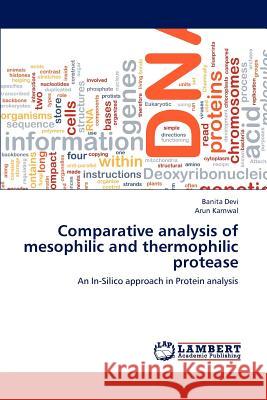Comparative Analysis of Mesophilic and Thermophilic Protease » książka
Comparative Analysis of Mesophilic and Thermophilic Protease
ISBN-13: 9783659268830 / Angielski / Miękka / 2012 / 72 str.
Peptidases are commonly designated as protease (EC 3.4), which is an important group of enzymes produced mainly for food, pharmaceutical, detergent, leather and textile industries. In food processing, proteases are used extensively for the modification and improvement of protein functionality, production of protein hydrolyzates, meat tenderization, utilization of different by-products, as well as for catalysis of the plastein reactions. A limited hydrolysis is advantageous to improve protein functional properties, such as solubility, emulsifying capacity and foaming and gel forming ability. On the contrary, deep hydrolysis leads to products containing short peptides and free amino acids. In many cases, selective proteases are necessary, e.g., for the development of desirable flavor, removing bitter peptides or for production of bioactive compounds. Proteolytic enzymes are very important in digestion as they breakdown the peptide bonds in the protein foods to liberate the amino acids needed by the body. Additionally, proteolytic enzymes have been used for a long time in various forms of therapy. Their use in medicine is notable based on several clinical studies.
Peptidases are commonly designated as protease (EC 3.4), which is an important group of enzymes produced mainly for food, pharmaceutical, detergent, leather and textile industries. In food processing, proteases are used extensively for the modification and improvement of protein functionality, production of protein hydrolyzates, meat tenderization, utilization of different by-products, as well as for catalysis of the plastein reactions. A limited hydrolysis is advantageous to improve protein functional properties, such as solubility, emulsifying capacity and foaming and gel forming ability. On the contrary, deep hydrolysis leads to products containing short peptides and free amino acids. In many cases, selective proteases are necessary, e.g., for the development of desirable flavor, removing bitter peptides or for production of bioactive compounds. Proteolytic enzymes are very important in digestion as they breakdown the peptide bonds in the protein foods to liberate the amino acids needed by the body. Additionally, proteolytic enzymes have been used for a long time in various forms of therapy. Their use in medicine is notable based on several clinical studies.











